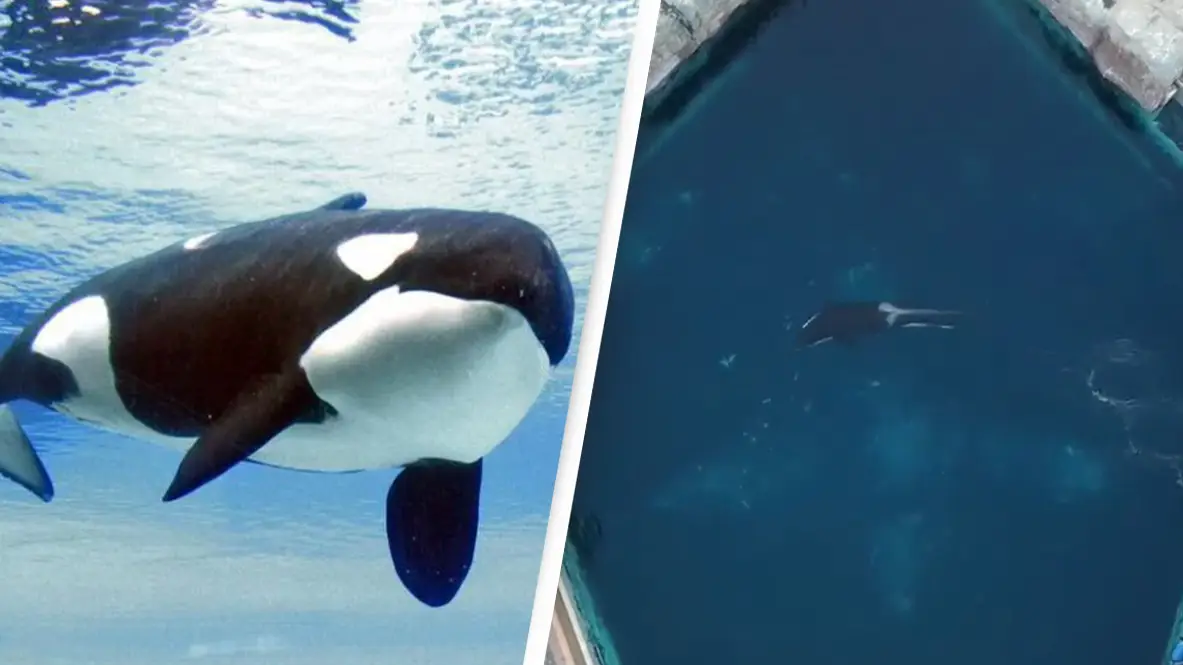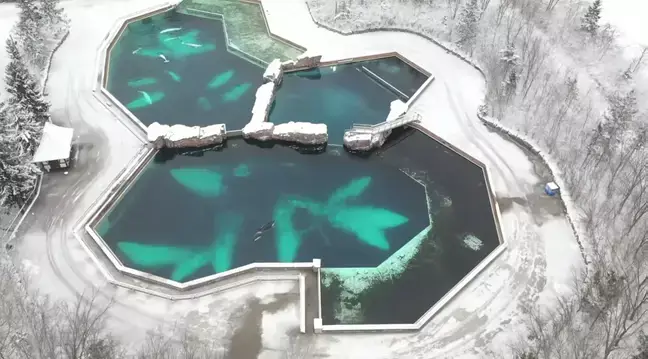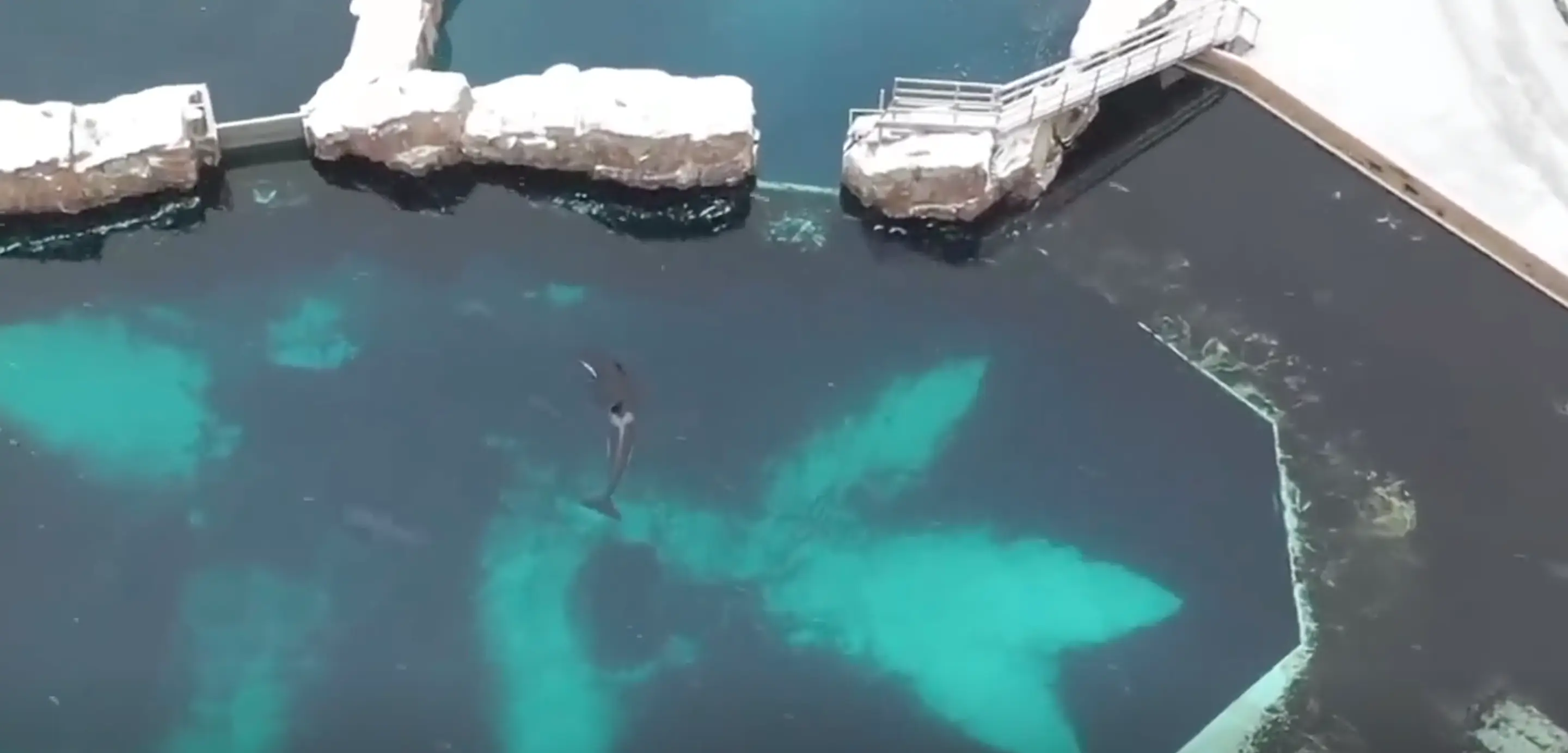
The world's loneliest orca has sadly died in captivity.
The national animal law organisation Animal Justice announced news of Kiska’s death on Friday (10 March).
The organisation is now renewing its call for Mainland to be investigated and prosecuted following the death of the beloved orca, who faced decades of confinement at the Niagara Falls aquarium.
Advert
The 46-year-old animal was held in a tank completely alone and suffered a lifetime of loneliness since she was taken from her family as a baby near Iceland in 1979 before being sold into the aquarium industry.
Since 2011, she has lived her life in isolation in a concrete tank and, as the Whale Sanctuary Project says, 'when not swimming in slow circles, she often floats in place, staring at the emptiness that is the inside of her tank'.
Although she no longer performed before her death, she remained on display and was the last captive orca in the whole of Canada.
Kiska gave birth to five babies but all of her calves died at a young age.
In 2021, footage of her banging her head into the tank walls went viral leading to anti-captivity and animal rights activists starting the hashtag '#FreeKiska'.

More recently, Kiska’s suffering made headlines around the world as videos surfaced showing the unfortunate animal floating listlessly in a lonely abandoned tank.
Drone footage from January showed the ‘heartbreaking’ sight of Kiska.
The 30-second drone video was shared by Phil Demers, a former head trainer of Marineland's stadium in Canada.
"Wow, that's horrible. I wish people stop paying money to go to these places,” one YouTube user commented at the time
"What's possibly more heartbreaking is that there's almost no chance of survival if they were to release Kiska into the wild," another wrote. "Nearly every orca that has once been in captivity and then released died very shortly after."
They continued: "If Kiska was born in captivity, then there is no chance of survival, as no captivity born orca released into the wild survived."

Animal Justice fought for Kiska for over a decade and filed legal complaints demanding an investigation into Marineland for the way it held Kiska.
Animal Justice also helped to pass a provincial ban on keeping orcas in Ontario in 2015, and a national ban on keeping whales and dolphins in captivity in 2019.
"It is heartbreaking to know that Kiska will never have the chance to be relocated to a whale sanctuary, and experience the freedom that she so deeply deserved,” said lawyer Camille Labchuk, executive director of Animal Justice.
"While no other orca will have to suffer the cruelty of captivity in Canada again, we are demanding justice for what Kiska endured at the hands of Marineland.
"We are calling on provincial authorities to make public the results of a post-mortem, and prosecute Marineland for the unlawful distress Kiska clearly experienced throughout her final years.”
UNILAD has contacted Marineland for comment.
